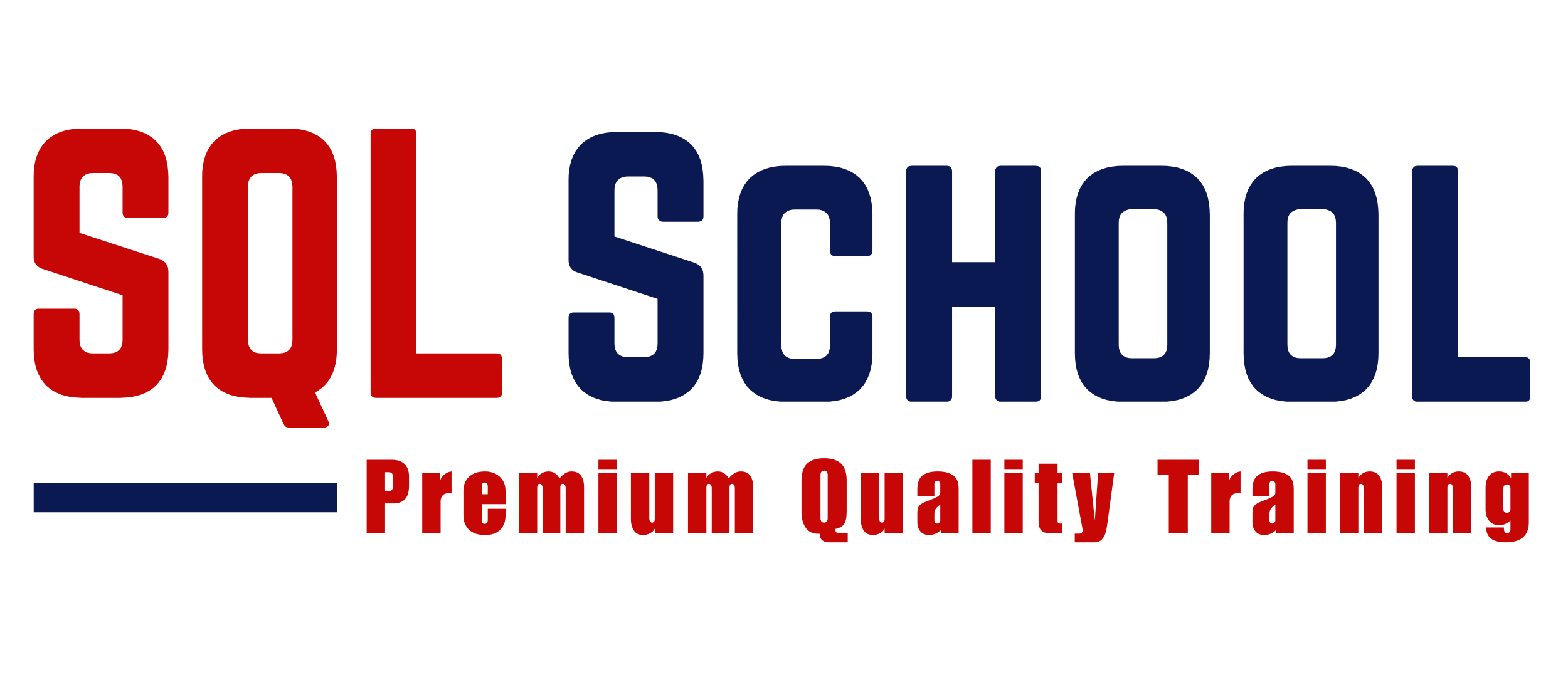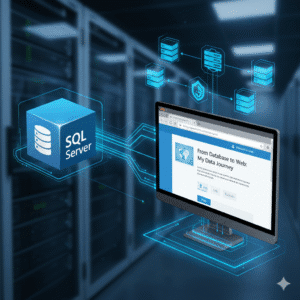🚀 The Ultimate Blueprint: How to Learn SQL Database Correctly & Become an SQL Master
In the vast landscape of Information Technology, one constant reigns supreme: data. And wherever there is data—in banking, e-commerce, healthcare, or data science—there is SQL. If you want to future-proof your career, mastering SQL is not just recommended; it’s mandatory, a true “vaccine for your resume” . This post, based on expert advice, provides the precise, step-by-step master plan for you to learn SQL Database correctly, moving from foundational concepts to advanced developer skills and cloud readiness.
📺 Watch the SQL Master Plan Explained
Get the full context and motivation from the experts at SQL School:
Don’t miss future sessions! Hit the subscribe button and click the bell 🔔 to get notified!
📝 What’s On Deck: Deconstructing the SQL Learning Path
⚙️ Key Concepts: The Foundational Vocabulary
Before writing your first query, you must understand the environment:
- Database: A high-security, easy-to-implement platform designed to store any type and any amount of data . It provides full support for cloud and AI integrations .
- DBMS (Database Management System):The essential software used to build, design, manage, analyze, secure, and troubleshoot databases .
- Major DBMS Examples:Prominent platforms include Oracle, SQL Server, IBM DB2, and PostgreSQL .
- SQL (Structured Query Language):The universal platform to store, manipulate, and report data; every single touch on the database requires SQL .
- T-SQL (Transact SQL):Microsoft’s special variant of SQL. It is noted for being a very easy, straightforward, and user-friendly language, highly recommended for jumping into job roles .
🗺️ Your SQL Career Path & Step-by-Step Module Guide
Your learning path should be tailored to your career goal. The curriculum is broken down into four logical modules:
- Module 1: MSSQL & T-SQL Queries (Chapters 1-24):This is the core foundation. It covers over 400 essential queries, including tuning, Common Table Expressions (CTEs), Joins, Procedures, and Functions .
- Target Roles (Module 1 is enough): Data Analyst, Data Engineer, Business Analyst, Data Scientist, Database Administrator (DBA), and Database Tester .
- Module 2 & 3: Programming & Query Tuning (Chapters 25-60):Focuses on solid coding, programming activities, and advanced query tuning optimizations .
- Target Roles (Modules 1-3 Recommended): SQL Developer, BI Developer, and Python Developer (those requiring deep programming/coding experience) .
- Module 4: Azure SQL Developer Program:This module is designed for those seeking senior or experienced programmer job roles, integrating cloud migrations, monitoring, and AI integrations .

🛡️ Career Versatility: Who Should Learn SQL?
The answer is simple: everyone . The skill offers:
- Universal Application: SQL is required across all major industries, including banking, telecom, healthcare, and e-commerce .
- Job Role Versatility:It’s essential whether you are a beginner, have a professional gap, or are an experienced IT or Non-IT professional .
- Developer Responsibilities:Advanced SQL Developers are responsible for complex tasks like implementing very large database designs, advanced procedures (LOB), cloud migrations, and AI search indexes .
💡 Hands-On Challenge / Practical Tip
The essential challenge for a beginner is ensuring you learn enough, but not too much, based on your immediate career goal (e.g., Analyst vs. Developer).
Hint: Quick Tip on Role Focus
If you’re aiming for a Data Analyst or DBA role, your focus should be primarily on retrieval and management—i.e., mastering Module 1 (T-SQL Queries). A Developer needs complex logic—Modules 2 and 3 (Programming).
Solution: T-SQL Command for Analysts (The Core)
For an Analyst or DBA, the core task is extracting and manipulating data for reporting and maintenance. This is the foundation of T-SQL (Module 1):
-- Analyst/DBA Core Command (Chapter 1-24 Focus)
-- Retrieving and joining data across tables (a key Module 1 skill)
SELECT
c.CustomerID,
c.CustomerName,
o.OrderDate,
SUM(od.Quantity * od.UnitPrice) AS TotalOrderValue
FROM
Customers c
JOIN
Orders o ON c.CustomerID = o.CustomerID
JOIN
OrderDetails od ON o.OrderID = od.OrderID
WHERE
o.OrderDate >= '2025-01-01'
GROUP BY
c.CustomerID, c.CustomerName, o.OrderDate
ORDER BY
TotalOrderValue DESC;
-- A Developer's code would add advanced stored procedures, triggers,
-- and complex error handling (Module 2+ features).
🌟 “Why This Matters”: Securing Your Future with SQL
The video clearly establishes that SQL is not a temporary trend; it’s a permanent layer of the IT ecosystem. Learning to learn SQL Database correctly ensures you acquire the main core competency required for your resume, opening doors to highly secure and in-demand roles like Data Scientist, Data Engineer, and Database Administrator. It provides career confidence and a pathway to specialization in areas like cloud computing (Azure SQL) and AI integration .
❓ Frequently Asked Questions (FAQs)
What is the difference between SQL and T-SQL?
SQL is the standard language for interacting with a database (Structured Query Language). T-SQL (Transact-SQL) is a specific, extended variant of the SQL language developed by Microsoft for use in SQL Server. T-SQL adds programming capabilities, making it “very easy and user-friendly” compared to generic SQL .
How much of the SQL course do I need for a Data Analyst role?
According to the step-by-step plan, a Data Analyst only needs to master **Module 1 (Chapters 1-24)**, which covers MSSQL and T-SQL queries, tuning, joins, and common table expressions. This foundation is sufficient for Data Analyst, Business Analyst, and DBA roles .
What is a DBMS, and why is it necessary for a database?
A DBMS, or Database Management System, is the software that serves as the interface between the user and the database. It is necessary because it allows users to manage, design, analyze, secure, and troubleshoot databases. Without a DBMS, the raw data would be unusable .
🎯 Summary Snapshot Table: Learning Plan at a Glance
| Focus Area | Key Takeaway | Your Action Step |
|---|---|---|
| Foundation | SQL is mandatory across ALL industries. | Master Module 1 (T-SQL Queries/Chapters 1-24). |
| Career Path | Analyst/DBA needs Query skills; Developer needs Programming skills. | Select your focus: Analyst (M1) or Developer (M1-M3). |
| Advanced Skills | Advanced roles require query tuning, cloud, and AI integration. | Include Modules 2-4 for senior developer roles. |
✨ Final Thoughts:The journey to mastering SQL might seem daunting, but it is highly structured. By committing to a practical, step-by-step approach—starting with the foundational T-SQL queries and building toward programming and cloud skills—you will gain the confidence needed for your interviews and job role. Don’t wait; secure your spot in the data world today.
Ready to take the next step in your learning journey? Reach out to the experts and start curating your resume with the skills that matter!
#️⃣ Hashtags:
#LearnSQLDatabaseCorrectly #SQLTraining #TSQL #SQLDeveloper #DataAnalyst #DatabaseAdministrator #SQLServer #DataScience #CareerTips #SQLMaster #Programming #TechSkills

